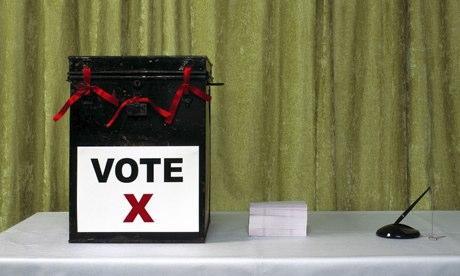
If I were a babyboomer, I’d be furious. That might seem strange coming from someone who blogs about youth unemployment, a topic typically sprinkled with jealous references to how easy our parents had it (admittedly, a temptation I gave into once or twice). But this “us and them” dynamic between the generations has got to stop. And not just because, admittedly, they’re beating us – this isn’t me quitting because the game is unfair. I’ve expended enough energy denouncing David Cameron as a heartless, corporate-driven, boiled egg-faced tit; it’s time for some fury from the other side. It’s time for some babyboomer rage.
Every blow to the young – such as the slashing of benefits unless we’re earning (despite the lack of jobs) or learning (despite the whacking up of tuition fees) – seems to come with a boost for the older generation, like a triple-lock on state pensions. Chris Huhne argues that because thevoting turnout is more than 30% higher in the pensioner age group than the 18-24s, politicians pander to them to the point that we’re living an a “gerontocracy”. It’s a clever illusion, that they’re rewarding the older generations, their “loyal voters”, at the expense of the young – but an illusion it is.
To begin with, triple-locked or not, pensions aren’t a gift from the taxpayer. They’re pre-earned. They’re as much a generosity as having a party in a stranger’s house, and saying: “Sorry about the damage. We triple-promise not to steal anything (else).”
But the pension triple lock isn’t even decent “compensation” for the collateral damage of the youth crisis. In her smart and sensitive comment piece, Jackie Ashley argued that “an injury to one is an injury to all” because we live in families, which are by their nature multigenerational. But the injury casued to the older generations by the youth crisis is even more direct and blunt than familial concern. Has nobody noticed how often a blow to the younger generation leads to babyboomers footing the bill?
The generation we have been repeatedly told to envy are the first who have to care for the generations either side of them – not only their parents who may need help in their old age, but their adult children. When young people were stripped of job opportunities, benefits, and the affordable roofs we so naively thought would come with our degrees, we became the Boomerang Generation. In the past decade and a half, according to the Economist, about 3.2 million 20- to 34-year-olds have gone back to live with mom and dad.
It is sad for the young people who probably envisaged a more independent life and can be horrendous for their sense of self-worth – but it’s not brilliant for parents either. Having their adult children back is like a middle-class bedroom tax – the government haven’t fixed the economy, the housing or job markets, so they’ve passed the cost of the generation on to the boomers.
Aside from the financial burden, the youth crisis must pack a nasty emotional punch to the older generation because through no fault of their own, they’ve failed as parents, in part.
They did everything they were supposed to; they sent us to school and university, convinced us to study so we’d have the freedom to choose our careers. Yet the result is a generation facing unemployment, or career ascension so slow and internship-ridden they may never afford to buy a house or have a family of their own. Was it their aim to spawn Generation Jobless who, according to World Health Organisation, are apublic health timebomb? Of course not. The most fundamental aim of parenting is surely to make sure your kid will be OK. Isn’t it maddening that, despite doing everything right, they’re not?
So how does a 2.5% increase in pre-earned state pensions, a cynical lunge for the rudely named “grey vote”, make up for any of that? It doesn’t. But by focusing all the visible damage on the young who so famously “don’t vote”, the generations are being divided and conquered. The “selfish, shortsighted old” versus the hard done-by young. God forbid we should all fight for the same thing – a stable economy, a functioning job market, houses we could conceivably end up buying without a nifty inheritance-tax dodge, a winning lottery ticket or an act of God. Maybe if we did, boomers wouldn’t refer to their own money as “the kids’ inheritance”, as if they’ve already outstayed their welcome just by continuing to live alongside their struggling offspring.
The “mustn’t grumble” generation need to start fuming along with the young. Like it or not, an angry generation of 18 to 24-year-olds is a nuisance; at this point the only clout we could claim would be a mass withholding of grandchildren. But an angry mob of babyboomers might actually effect change. Let’s see some boomer rage for the raw deal we’ve all been dealt.
